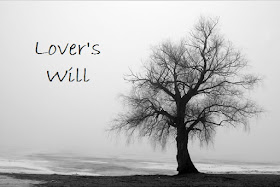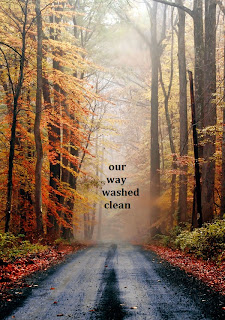From "
Exploding the Groupthink Myth":
Factoid from Facebook: A group comprised of fewer than 1 in 10,000 living poets has quietly produced, in addition to the bestselling personal poetry collection (not including educational sales), one third of the speakers at the 2012 West Chester convention and all of the last ten¹ Nemerov winners. Who are these poets and what is the source of their mojo? Do they have a secret handshake?
 |
| Dennis Hammes (1945-2008) |
|
If your exposure to e-poetry is limited to a few webzines and the blogosphere you probably think of "online poetry" as...well, poetry that is online: ditties on Facebook, collections on vanity pages or the blogosphere, or quality works on e-zines (e.g.
TheHyperTexts,
The Pedestal, etc.) and e-versions of magazines (e.g.
Rattle,
Poetry, etc.).
Those who have been part of the online poetry community for more than a few years use the expression to describe someone whose aesthetics were, in whole or in part, developed and/or shared in
online workshops.
If this group were to have a motto it might be: "Be teachable. We can work with the clueless but not the clueproof." More succinct is Scavella's Mantra: "You aren't as good as you think you are."
The core difference between the print and pixel mindset is the immutable versus the improvable. This is reflected in the media themselves. When a number of critics and advisors pointed out errors in a popular textbook the author did a recall and reprint--an awkward process in a hardcover listed at $95.00! When we bloggers or e-zine editors make mistakes we thank the reader, make the correction without much cost or bother, and move on. By definition, onliners invite critique; criticism of printed work is rare and not always welcome.
 |
| Seamus Heaney |
|
It would be hard to imagine
Seamus Heaney as an attendee, as opposed to a facilitator, of a live workshop. Can you envision
Derek Walcott posting his drafts to an online critical forum? No. Print poets don't want a reader to see the sausage being made. They want to continue the Mosaic illusion of words coming straight from some divine source onto stone tablets. Immutable.
Other poets of their calibre,
some of whom may be familiar to you, do present their works-in-progress for constructive critique. Theirs is an equally simple motivation: they believe in improvement of poems and poets.
The preamble to this article hints at the significance of this tiny community. We might wonder: how did it come into being and what else has it contributed to the whole?
Origins of Online Information Exchange:
 |
| Michael McNeilley (1947-2001) |
The Finger program, written in 1971 by Les Earnest, facilitated access to university databases. This later morphed into much more sophisticated search engines like Google or Bing. It was the first major
civilian Internet application.
Email protocols, standardized in 1973, added a carbon copy feature soon afterwards. This paved the way for the discussion list: roughly, people sending out Round Trip Memos. After Information Technologists and other scientists, English Departments were the third to employ this new technology and the first to expand Internet use to non-academics: journalists, novelists and poets.
Usenet:
 |
| J. R. Sherman |
|
Implemented in 1980, Usenet is an online bulletin board service (BBS), divided into "newsgroups". One of the first of these was rec.arts.poems, joined much later by its echo chamber, alt.arts.poetry.comments. For 13 years before the World Wide Web a thriving poetry community discussed and analyzed poems online. Terms describing people and behavior, including "crosspost", "flaming", "kill file", "plonk", "lurk", "postcount", "CABAL" (technically, the group that started Usenet but, more commonly and metaphorically, a term used to aggravate egomaniacal paranoids), "spam", "sockpuppet", and "troll", were popularized on Usenet. For better or worse, what we now call "chat-speak" began there, highlighting "acronyms" such as "LMAO", "BTW", "AFAIK", "FWIW", "IIRC" and "IMHO". Before Usenet, "LOL" meant "Little Old Lady". Because rec.arts.poems habitues were among the most literate and vociferous Usenetters many, if not most, of these expressions can be attributed directly to them.
Here is a provocative factoid for you: had people cared to use the available technology, the rec.arts.poems newsgroup would have been the first venue where
all poets in a postliterate society could have been gathered in one location. If humankind had produced an iconic poem in the half century before Facebook it would probably have happened on Usenet. It was the only game in town.
Not counting Dr. Seuss nursery rhymes, would you care to guess the title² of the best known poem
among poets in the last three decades?
 |
| Peter John Ross |
|
If you have learned anything about poetry technique, but especially about
scansion, on the Internet there is a good chance that you can credit Peter John Ross, directly or indirectly. If you are not familiar with this guy you are either not a poet or not a
Usenetter. Author of the satirical "
rulez 4 aspiring ~poets~", PJR is a mainframer, linguist, wit, critic and one of the world's leading authorities on matters prosodic. Unfortunately, along with Gary Gamble, "J.R. Sherman" (aka "The Value Added Savior"), and the late
Dennis Hammes, Mr. Ross spent most of his time on unmoderated Usenet forums fighting trolls or TORLLS [sic] (i.e. illiterate trolls). These reprobates were so odious and numerous that a search engine was developed to track them: "Kookle".
No, really.
World Wide Web:
The World Wide Web started in 1993 but it wasn't until the mid-to-late 1990s that browsers and public interest developed. Among the first critical sites was Bela Selendy's "
Poetry Free-For-All" or "
PFFA", which grew directly out of the need for Usenetters to find a moderated forum, sans trolls. People who complain about how sharp some of the
PFFA critics and moderators can be need do no more than Google "rec.arts.poems" to understand why. Today, when you see the guidelines of an online workshop you are reading the "don't-crit-the-crit" ethos developed by Usenetters.
 |
| Rik Roots |
|
Along the way we saw the egoless experiment: two sites where poems and critiques were posted anonymously. The first of these was "The Lathe", created by English poet and programmer Rik Roots. On
Egoless, poems and critics earned performance ratings. Among other innovations, the egoless format originated the "thumbs down" and/or "thumbs up" (then called "me too" or "chime") buttons used by social networks and discussion software today.
What were the lessons we could draw from from the egoless experiment? Nothing onliners didn't already know, really:
- Selfless, informed critiquers like Hannah Craig and Aidan Tynan are gold;
- very few poets are interested in a careful, objective evaluation of their work, even if rendered politely and received anonymously; and,
- the social aspect of a workshop is important.
Today, the egoless format survives in business, scientific and political discourse models. Among poets, its legacy is in
its motto: "If you don't think your writing is competing against the works of others you're probably right."
 |
| Christine Klocek-Lim |
Soon after
PFFA came
Eratosphere, run by Alex Pepple, and
Alsop Review Gazebo, established by the late Jaimes Alsop. A few years laters we saw the first of two incarnations of the now defunct
Poets.org forum, headed by
Autumn Sky Poetry head editor Christine Klocek-Lim. When we speak of the pre-existing World Wide Web community, these are some of the key figures.
Which of these venues would I recommend to those eager to improve their technique? Such individuals should join and lurk on all of them, really, but if new to the study of the craft--regardless of how many decades they've been writing or teaching poetry--I'd encourage them to learn the basics before joining in. Those who know that Edna St. Vincent Millay's "
Moriturus" is neither iambic nor free verse should consider
Eratosphere.
In Conclusion:
 |
| Margaret Ann Griffiths |
|
The history of online poetry may be obscure to most but it accounts for much of our modern language (mostly tech- and text-speak), a claim that page and stage poets cannot match. It is a story of struggle against trolls and between aesthetics, often punctuated by brilliant one-liners and rants. Stay tuned for more on this subject in upcoming posts.
Let me leave you with one final touchstone. It doesn't matter if you edit or have been published in a hundred webzines, have run a popular blog for years and have the world's largest poetry newslist. If you don't know who
Margaret Ann Griffiths is you are not an onliner. Period. It follows that if you want to understand this community
you will find no better starting point.
Footnotes:
¹ - Make that 11. Since we posted this,
Gail White won her second consecutive Nemerov. Congrats, Gail!
² - The ultimate filler-and-killer poem, "Hookers", written by Marco Morales in 1995, is familiar to all rec.arts.poems denizens--that is, to everyone who engaged in any open online poetry discussion at that time.
Missing you again
I embrace shallow graves.
Pale faces, doughlike breasts
help me forget.
Your feedback is appreciated!
Please take a moment to comment or ask questions below or, failing that, mark the post as "funny", "interesting", "silly" or "dull". Also, feel free to expand this conversation by linking to it on Twitter or Facebook. Please let us know if you've included us on your blogroll so that we can reciprocate.
If you would like to contact us confidentially or blog here as "Gray for a Day" please use the box below, marking your post as "Private" and including your email address; the moderator will bring your post to our attention and prevent it from appearing publicly.
We look forward to hearing from you.
Signed,
Earl Gray, Esquirrel

















































